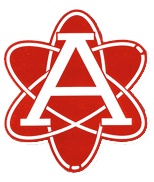Literary Criticism
Resources
How to Write Your Literature Essay
If you are writing an analysis of a work of literature, follow these steps:
Step 1:
Read the text for pleasure and discovery of the story.
Step 2:
Read the text again, to observe the author at work and start to see literary patterns and write those down/annotate.
Step 3:
Pull those patterns out of the text to observe and evaluate which ones you want to look at further.
- Observing patterns outside of the text allows you to identify relationships between patterns down to the word level.
Step 4:
Search for the following in books or databases to strengthen your argument with literary criticism:
-
Text title
-
Text author
-
Genre of writing
-
Literary theory or criticism
-
Literary elements that are in, or contribute to, or define the structure of the text
What is Literary Criticism?
- Modesto College - What is Literary Criticism?
- Dickenson College - Literature, Film & Drama: Literature Criticism
- University of Texas at Arlington - Literary Criticism Theories
Guidance for Research Requiring Literary Criticism
Before starting your research, see how the pros do it. Review these university library websites on reading and writing literary criticism.
- University of Texas, Arlington: Libguide on the steps for literary criticism
- OWL: guidance and a worksheet to help you read literary criticism
- OWL: Writing about world literature
Available Literary Criticism Resources
Annandale High School Library
(Passwords are needed off campus. Please check the AHS Library Blackboard page or come into the library to pick up a printout of all database passwords.)
-
Gale Literary Sources - Includes three databases
-
-
Literature Criticism Online - largest, most extensive compilation of literary commentary available, Includes centuries of analysis - the scholarly and popular commentary from broadsheets, pamphlets, encyclopedias, books and periodicals
-
Literature Resource Center - up-to-date biographical information, overviews, full-text literary criticism and reviews on nearly 130,000 writers in all disciplines, from all time periods and from around the world
-
LitFinder - provides access to literary works and authors throughout history and includes more than 130,000 full-text poems and 650,000+ poetry citations, as well as short stories, speeches, and plays
-
Public Library Digital Resources (Fairfax County Public Library)
(You will need your library card number, or come to the library and you can use ours)
-
Literary Sources - The Public Library version of Literary Sources differs from AHS's as it has five databases:
-
The Gale Virtual Reference Library
-
The Literature Resource Center (the LRC)
-
Litfinder
-
Scribner Writer Series
-
Twayne's Author Series
-
Google Scholar and Advanced
- Google Scholar (scholar.google.com) provides a simple way to broadly search for scholarly literature. From one place, you can search across many disciplines and sources: articles, theses, books, abstracts and court opinions, from academic publishers, professional societies, online repositories, universities and other websites. Google Scholar helps you find relevant work across the world of scholarly research.
- Google Advanced Search - allows you to add multiple parameters to restrict your search results
Struggling? Try This.
Try the following strategy if you are struggling and not finding any information:
-
Search the title, author, or genre.
-
Read what you find.
-
Pay attention to the language used to discuss the topic.
-
Identify and use key search terms. Most databases provide related search terms or topics somewhere on the search page. Look for them, and explore.
-
Make notes of the language you discover through this process.
-
Use the language you find in your future searches. Very often, the language used to discuss the topic will generate more productive searches in databases.
General Resources - For language discovery or context and background information. NOTE: do not cite these in your paper.
-
Biography in Context - database
-
Google Search
-
Wikipedia - pay attention to the sources

